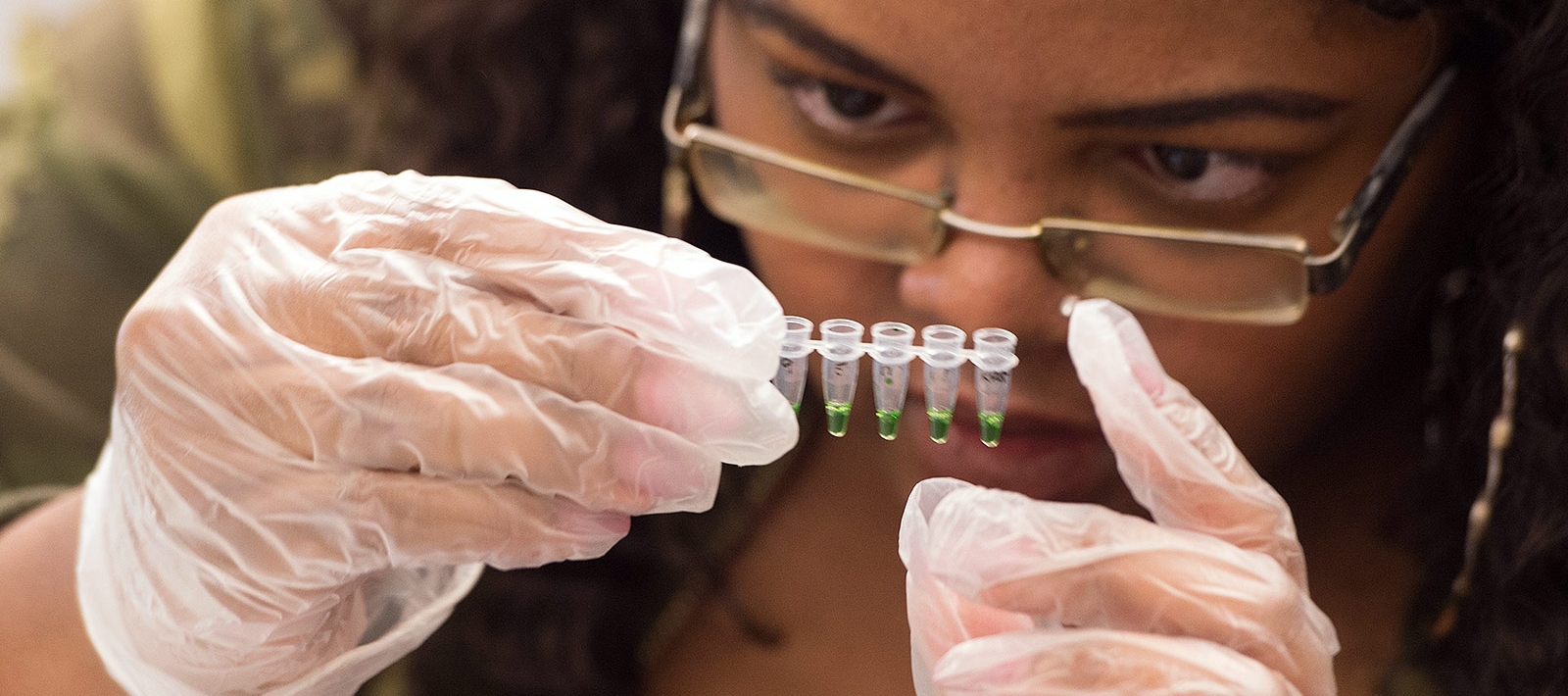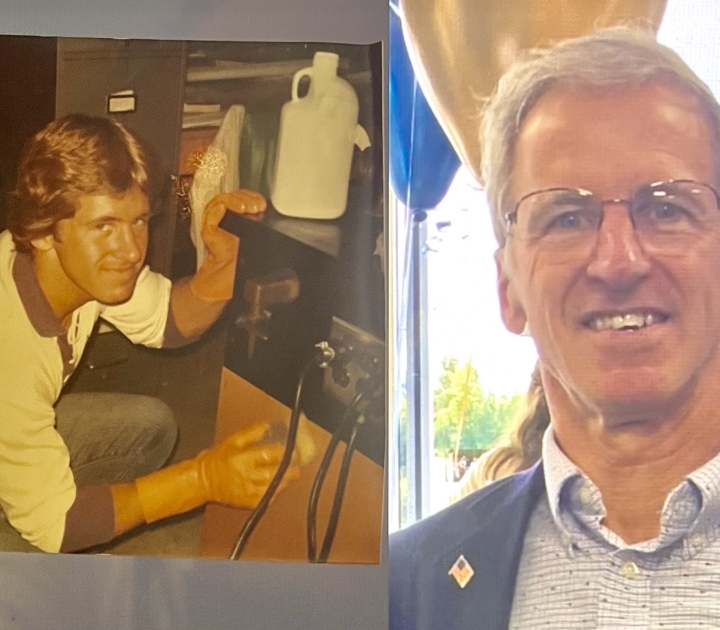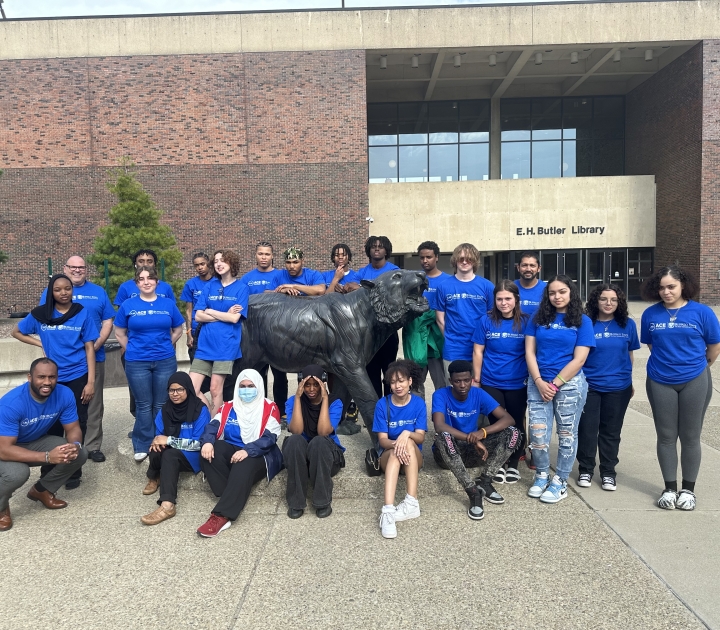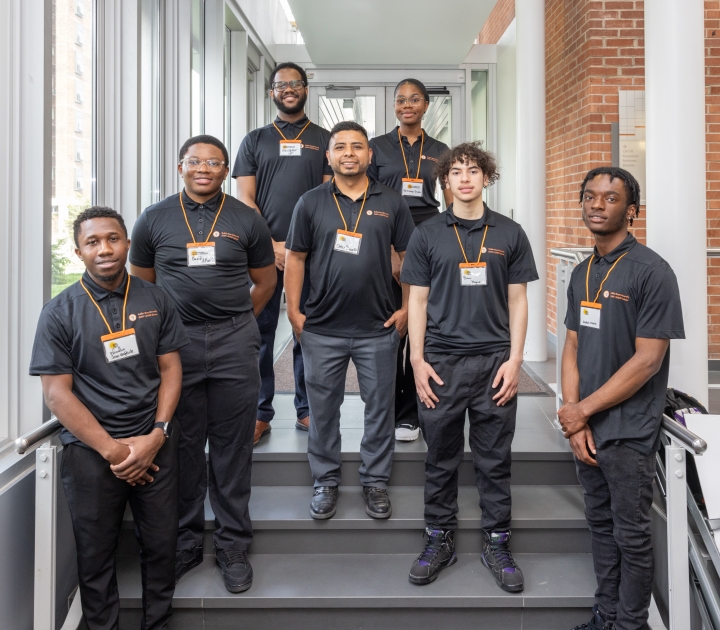
About the Biology Master of Arts
Buffalo State’s master of arts (M.A.) in biology prepares students for professional employment and advanced degrees in fields ranging from ecology and evolution to biotechnology and health sciences.
The biology master's is divided into a research-focused thesis track (original research conducted with a faculty member) and a course-focused comprehensive exam track (coursework and a culminating examination).
Overall, the biology M.A. program offers diverse course offerings, making it attractive both to students interested in pre-medicine or public health and students wanting to pursue careers in environmental biology, aquatic biology, or fishery.
Degree Information
Job projections are healthy and salaries lucrative for positions in the biology field that require a master’s degree.
For instance, biochemists earned a median annual salary of $94,490 in May 2019, according to the U.S. Bureau of Labor Statistics, while the median pay for zoologists and wildlife biologists was $63,270 annually in 2019.
Our graduate students have found work with the New York Department of Environmental Conservation, the U.S. Fish and Wildlife Department, Buffalo Niagara Waterkeeper, and Roswell Park Comprehensive Cancer Institute, as well as numerous biotech companies.
In addition, students have used the biology M.A. as a jumping-off point for doctoral research or preparation for medical or dental school.
Other positions for graduates with a master’s degree in biology include:
- Aquarium manager
- Environmental scientist
- Fish and game conservator
- Marine biologist/oceanographer
- Medical geneticist
- Toxicologist
- Water conservation scientist
- Wildlife rehabilitation specialist
- Zoologist
Flexible Courses
The vast major of courses are offered in the evenings and some may be moving online soon, making the graduate program convenient for working professionals.
Excellent Faculty
The Biology Department faculty, many of whom worked for years in laboratories and other scientific backgrounds, provide rigorous course instruction and have the professional connections to secure placement in fieldwork and employment.
Great Lakes Center Field Station
Buffalo State owns more than five acres of waterfront property where students can gain hands-on field experience on ecological projects. It contains a fleet of 15 vessels, a microscopy lab, and fisheries lab and is the only center of its kind in the area.
WNY PRISM
The Western New York Partnership for Regional Invasive Species Management works with local scientific organizations to restore and protect the region’s natural resources. WNY PRISM is hosted by Buffalo State's Great Lakes Center, which is the only center of its kind in the area.
Eckert Herbarium
This on-campus herbarium houses a large collection of vascular plants and flora for student observation and study.
“I was fortunate to receive my undergraduate degree from Buffalo State, and, when searching for a master’s program, I felt strongly that my best option was to return. The faculty members in the Biology Department are unmatched in not only their knowledge and experience, but their compassion and dedication to teaching, as well.”
“Amy (McMillan, associate professor of biology) was about the best mentor I could have hoped for...My work with Amy has offered me a really unique view of this career as a whole.”



